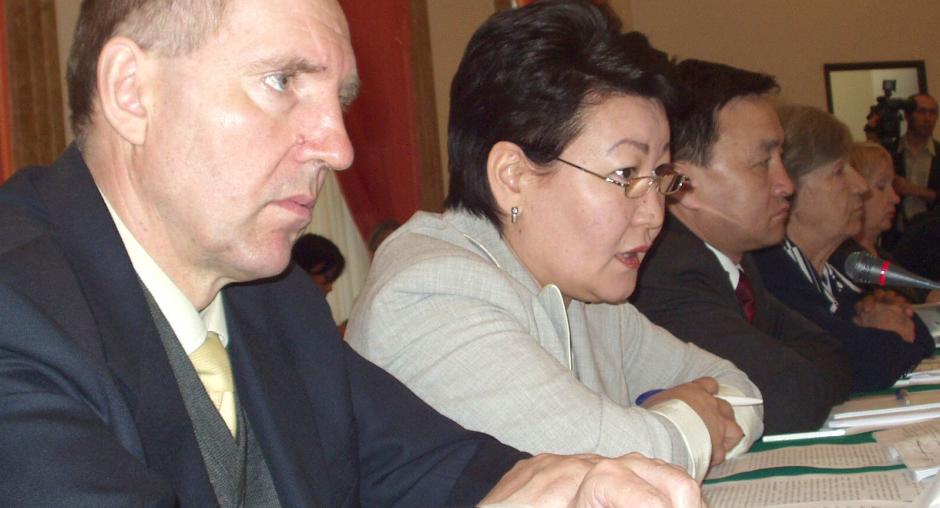OSCE/ODIHR presents recommendations on amendments to legislation concerning national security

ASTANA, 22 April 2005 - The OSCE Office for Democratic Institutions and Human Rights (ODIHR) today presented comments on a draft law on national security issues in Kazakhstan.
If adopted in its current form, the OSCE/ODIHR believes it would be in breach of international legally binding standards on several accounts.
Therefore, the OSCE/ODIHR urges the authorities to reconsider the proposed legislation in all of its ramifications across the legal system of Kazakhstan, as well as in light of its international obligations.
The comments were presented at a forum in Astana, a joint endeavour of the OSCE Center in Almaty, the Commission for Human rights in the Office of the President of Kazakhstan and the Delegation of the European Commission.
The forum provided an opportunity for discussing the draft while it is still under review in parliament.
The proposed legislation contains amendments that may result in non-compliance with a wide range of OSCE commitments regarding human rights, democracy and the rule of law. This raises serious concerns, particularly with regard to freedom of association, freedom of religion or belief, as well as freedom of opinion and expression. Also of concern are the proposed provisions regarding the establishment, registration and suspension of political parties.
The OSCE/ODIHR noted that national security can be a ground for restricting certain rights and freedoms. However, national security cannot be used as a pretext for imposing vague or arbitrary limitations that jeopardize fundamental rights and freedoms. Furthermore, under international law, national security cannot justify restrictions upon the freedom of religion or belief.
In many cases the draft amendments would allow national security interests to be invoked as a justification for unnecessary restrictions upon human rights.
The OSCE/ODIHR stressed that the draft must make clear that the envisaged limitations would have to respond to a pressing public or social need. Furthermore, the draft must make clear that such amendments are necessary to protect national or territorial integrity or political independence against force or the threat of force.
